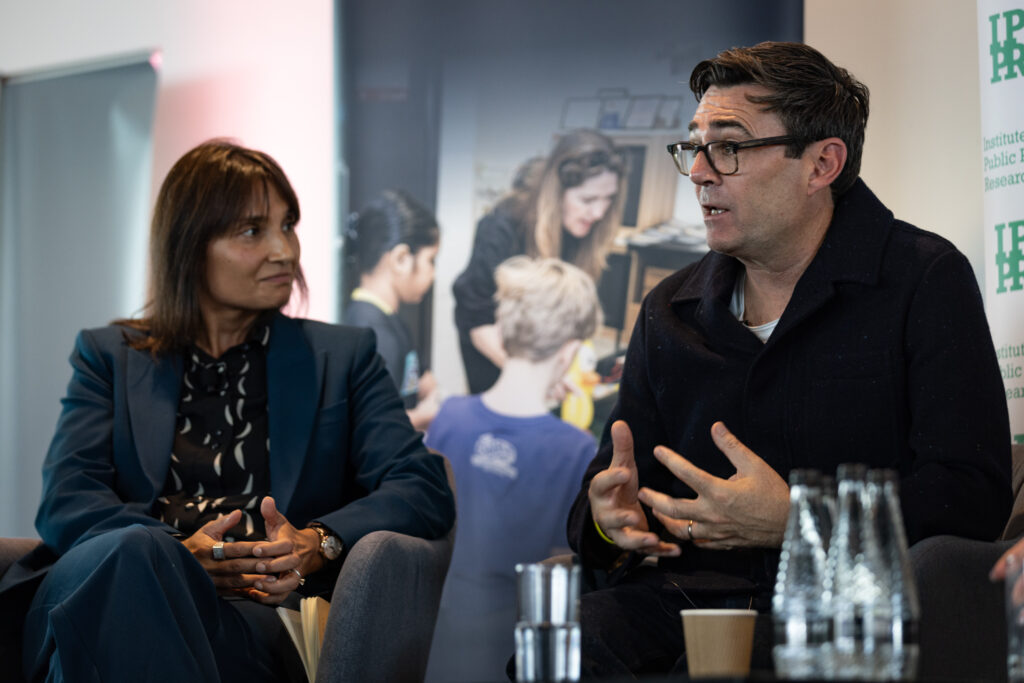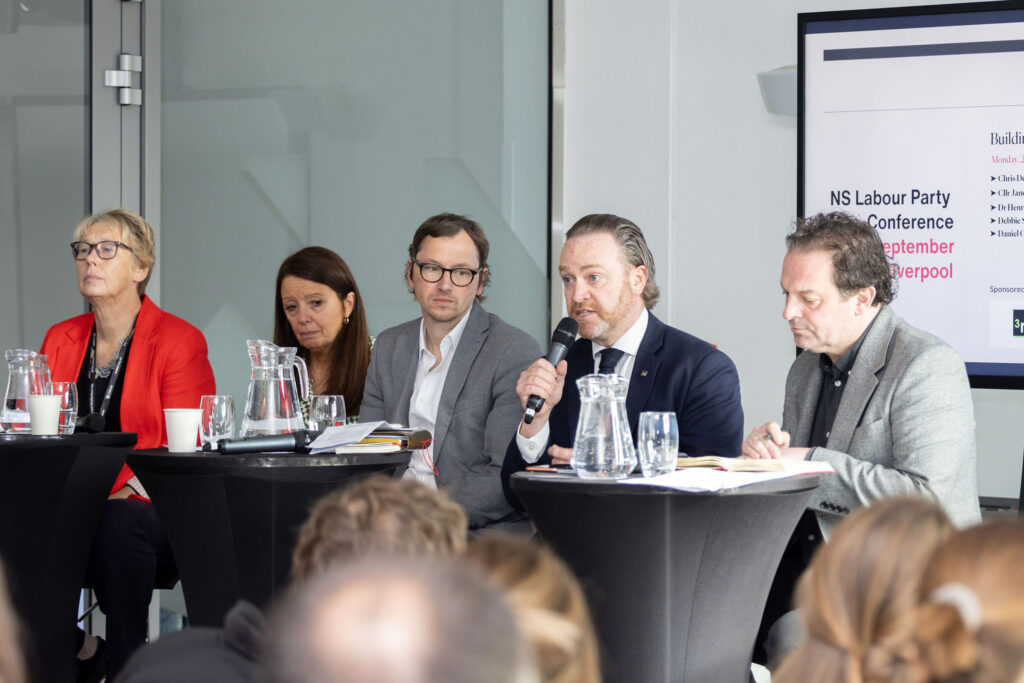Party conferences 2025: the highlights reel
As the political party conference season draws to a close for another year, Local Trust’s policy and parliamentary manager, Tilly Steward, looks back at our visits to Bournemouth, Liverpool and Manchester and shares three key takeaways from across our activities and engagement.
1. Civil society is worth fighting for
The United Kingdom is home to an incredibly vibrant voluntary and community sector. But it is also increasingly fragile – recent decades have seen the sector forced to weather a storm of social, political and economic crises. The pressure on individuals and groups to do more with less is not unique to civil society organisations, but it has been exacerbated by severely constrained funding and significantly higher demands for support.
In partnership with the Lloyds Bank Foundation and Royal Voluntary Service, Local Trust hosted a civil society reception at the Liberal Democrat conference in Bournemouth to celebrate the contribution of those working to deliver change in their communities and to reflect on the sector’s future. We were joined by Max Wilkinson MP and Lisa Smart MP, then-spokespeople for Culture, Media and Sport and Home Affairs respectively. Both brought enthusiasm and a real recognition of the impact made by local residents and volunteers across the country.
Collectively, our organisations called for policymakers to unite behind three changes to strengthen civil society:
- Unlocking charitable giving – through a national philanthropy strategy and local government partnerships.
- Investment in social infrastructure and civic capacity building.
- Support for volunteering.
As our chief executive, Rachel Rowney, noted on the night: if we want to reinvigorate the voluntary and community sector, we have to create the right environment for it to thrive. This means working from the bottom up to build local empowerment and engagement, supporting communities to come together and create bonds that last.
2. Neighbourhoods are back on the agenda
The days leading up to the Labour Party conference in Liverpool saw major policy announcements that have the potential to shift the dial in our most disadvantaged neighbourhoods.
First, the government’s new Pride in Place programme will deliver £20m of funding over the next decade into neighbourhoods doubly disadvantaged by both the highest levels of deprivation and the weakest social infrastructure. The announcement reflects our calls for residents to be given the resources and decision-making power to rebuild their own communities, in what represents a radical shift from previous Whitehall-led approaches that have too often not resulted in change for the most deprived places.
Second, the government’s response to the technical consultation on a Community Wealth Fund marked a major win for the seven-year campaign, confirming the Fund would be targeted at the places most in need of investment in civic capacity building. Communities will be able to identify where they want the money to be spent and make decisions about how resources should be used.
As a result, one of the conference’s main buzzwords was “neighbourhoods”, setting the scene for fringe events supported by Local Trust and one of our legacy organisations, 3ni – the national network for neighbourhood improvement. Drawing on the evidence and insight we’ve generated over the past 13 years, how the ambitions contained within this emerging neighbourhoods agenda can be best achieved will be a key focus for the work of Local Trust as we approach the end of the Big Local programme in 2026.
A highlight for me was Local Trust’s event with IPPR North, focusing on the “devolution revolution”. From bold metro mayors to grassroots community-led change, speakers included Mayor of Greater Manchester Andy Burnham, Minister for Local Government and Homelessness Alison McGovern MP, and Jack Burkinshaw from Brereton Million Big Local. Together they explored how devolution can deliver a more inclusive, prosperous and democratic England – and shared their takes on how to make this neighbourhoods moment count. Catch up with the full recording.

Local Trust CEO Rachel Rowney with Mayor of Greater Manchester Andy Burnham at the IPPR North event at the Labour Party Conference. Photo: James Speakman, Mousetrap Media.
3. Building more connected, resilient communities is more important than ever
3ni’s fringe event in partnership with the New Statesman focused on the importance of building social capital – the networks that bring people together and provide residents with the support to make their neighbourhoods better places to live and work. As 3ni director Dan Crowe reflected: “We’re at a pivotal moment for neighbourhoods, and particularly for improving the opportunities and outcomes for residents living in communities that for far too long have been overlooked, disinvested in, and who might have felt they have been left behind.” Debbie Stephens, Chief Executive of the L30 Community Centre in Netherton, drew on her involvement in the Big Local programme to stress the importance of long-term funding and enabling residents to take part in all aspects of neighbourhood renewal.

3ni director Dan Crowe speaking at the 3ni and New Statesman fringe event at the Labour Party conference. Photo: ASV Photography.
This theme also ran throughout other fringe events organised by peer organisations, the culmination of which was perhaps More in Common, UCL Policy Lab and Citizens UK’s This Place Matters rally. Delegates and policymakers were this year really recognising and reflecting on the importance of local relationships and investing in them if we are to have more connected and cohesive communities. When local institutions and associational life are thriving, people can be brought together across divides and contribute to a stronger social fabric.
Featured image: The panel speaking at the IPPR North event at the Labour Party Conference. Photo: James Speakman, Mousetrap Media.
Tilly is the policy and parliamentary manager at Local Trust.
